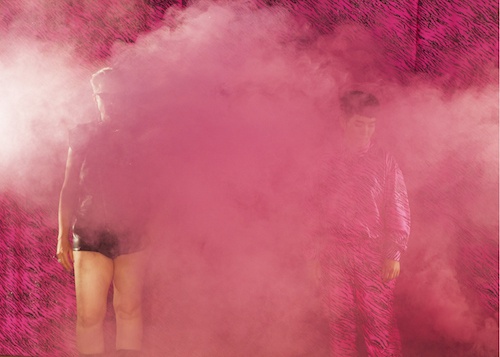Renate Lorenz and Pauline Boudry often use historic objects, such as a photo, a piece of music or a literature text as starting point for their films. The artists also have a clear preference for objects relating to queer. Most of these sources refer to utopian – unknown or difficult to recognise – moments, that have now become reality or have a major opportunity of doing so in the near future. Lorenz and Boudry like to make use of performances in their films. This allows them to merge events from different times and thus create links between two moments. Reality and fiction are often interwoven with one another. What's more, the above-mentioned historic objects are combined with references to, e.g. experimental films or drag performances. This results in highly personal imagery that questions contemporary norms and is thus given a political tenor. For the rest, the films of Renate Lorenz and Pauline Boudry not only reveal the mechanisms of oppression and discrimination, they also show us the emancipatory power of desire and the contravention of current – albeit often unjust – rules.
Opaque (2013) is a poetic film about the fact that an enemy does not always have to be a stranger, but instead could be someone we love or a friend. We even have to accept, sometimes, that we are our own enemy, though it would be much easier to point our finger at a clear enemy outside ourselves, than to accept that we are involved in an internal battle. At the end of the film we see a curtain and two performers in what is left of a public swimming pool. They claim to be representatives of an underground organisation and the curtain is to guarantee their anonymity. The public is at some distance. The building even seems deserted. As soon as the curtain is lifted, a pink curtain with a zebra design appears that combines military camouflage with the stereotypical style of homo outfits. At the same time, large quantities of smoke start swirling around. Is the thick smoke the result of bombardments or is it evidence of an on-going political demonstration? This is followed by a speech, based on the text The Declared Enemy, written by Jean Genet in 1970. We hear two performers wondering how we can go to war or to battle without feeling any resistance or without having a clear and “visible” enemy.

